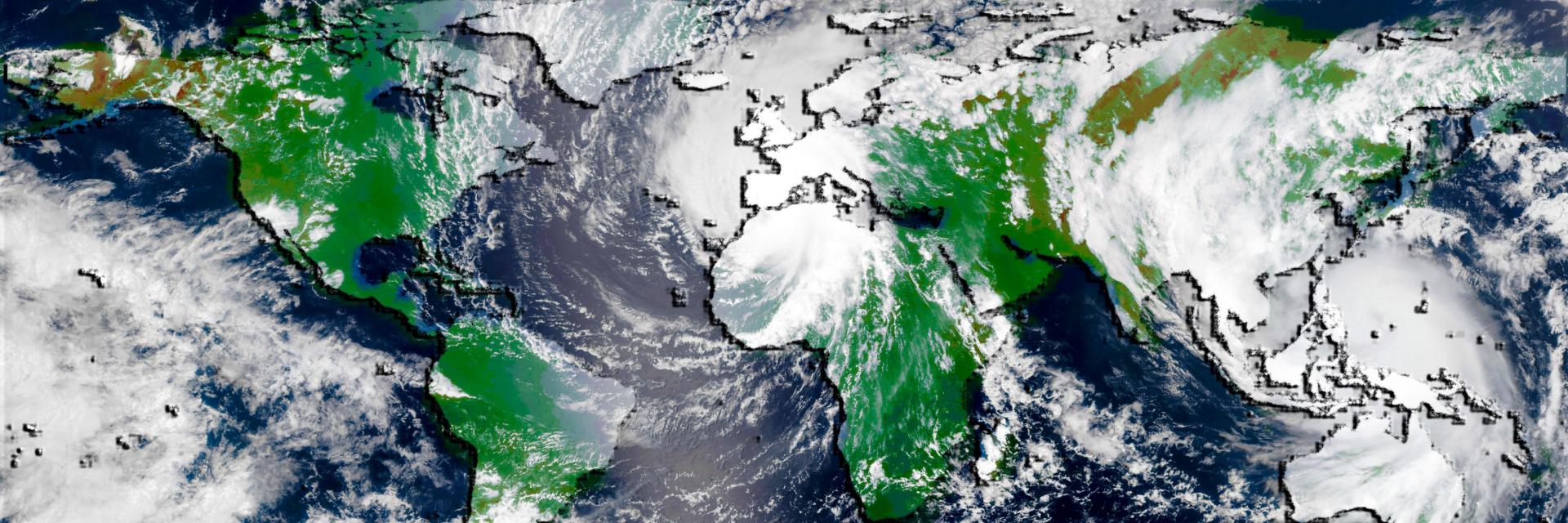Climate Information Services have been identified as an essential public service. This was the main message emerging from the highly intensive and engaging Fourth Professor Godwin Obasi Memorial Lecture. This annual lecture series which was inaugurated in 2019 has now become a core feature of the Climate Change and Development Conference in Africa (CCDA).
This year’s lecture was a joint effort of the WMO Regional Office for Africa team led by Dr Amos Makarau. The lecture highlighted the key messages included in the State of Climate in Africa Report 2021 which points out the climate dangers and vulnerability threats fac by the continent.
The lecture gave a panoramic view of the continent and provided detailed data on warming in Africa which has been higher than other regions in the world leading to extreme weather events such as drought and the melting of Africa’s iconic glaciers on Mount Kenya and Kilimanjaro. It underscored the rate of sea level rise in Africa which is higher than the global mean triggering increased coastal flooding and erosion in much of coastal Africa. The lecture further illustrated the incidences of storms and cyclones in the southern Africa region. The shrinking of Lake Chad was also covered as was the cases of floods in Congo Basin and Lake Victoria as well as the sandstorms in the Sahel and north Africa including wildfires in the Maghreb region. Over 80 million people affected by drought and acute food shortages with 30% agricultural productivity affected by extreme weather events.
The lecture also disaggregated the data to showcase the human face of extreme events on the continent and the economic costs.
On other perspectives, the Obasi lecture gleaned over the continent’s revised Nationally Determined Contributions (NDCs) to illustrate the quest for climate solutions and make a case for the importance of access to CIS in line with the UN Secretary General Antonio Guterres’ 5-year clarion call in March 2022 to ensure every person on earth is protected by adequate early warning and early action system. The lecture emphasized the big challenge facing the continent in this ambitious goal as 60% of Africa’s population have no access to early warning systems.
On linkages of CIS to other sectors, the lecture outlined the essential role that it plays in offering early warning services to agriculture, water management, livestock, wildlife sector, disaster risk reduction and private sector partnerships. It highlighted the vulnerabilities including special needs and circumstances faced by Small Island Developing States (SIDS) including the Least Developed Countries (LDCs).
The lecture implored the continent on the need to invest and accelerate the implementation of end-to-end multi-hazard early warning systems in Africa.
By the close of the 2022 Obasi Memorial Lecture, it was clear the message of boosting the power of prediction for everyone and recognizing the value of early warnings as critical tools to reduce disaster risk and support climate adaptation had been adroitly delivered.
In closing, the lecture aptly set the scene for a robust debate that elicited a wide array of comments and interventions from the diverse stakeholders in attendance.
Issued by:
Communications Section
Economic Commission for Africa
PO Box 3001
Addis Ababa
Ethiopia
Tel: +251 11 551 5826
E-mail: eca-info@un.org

